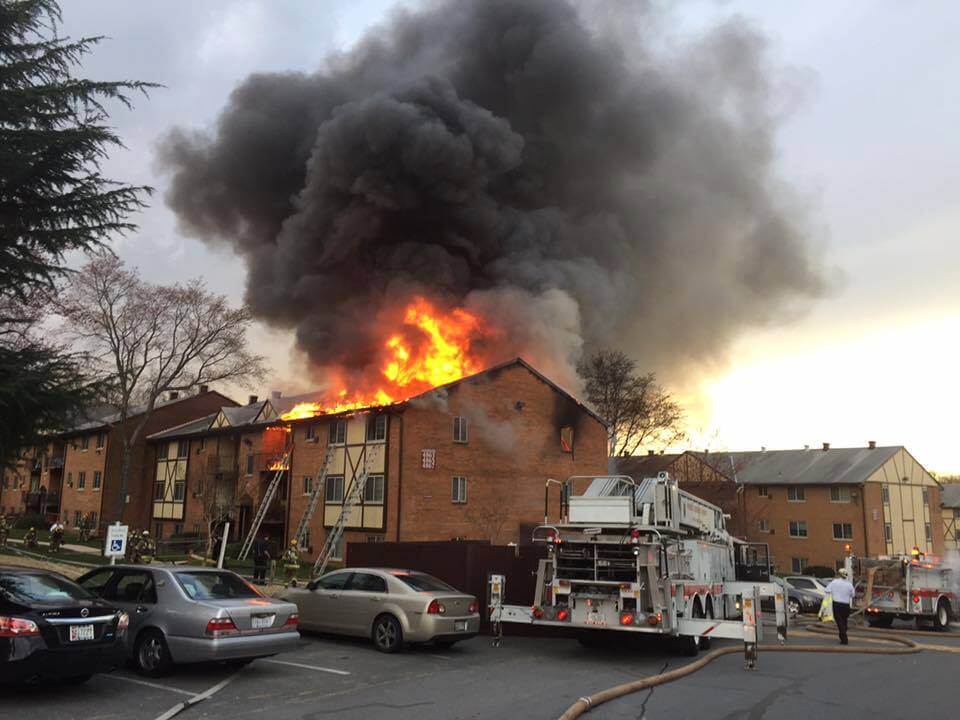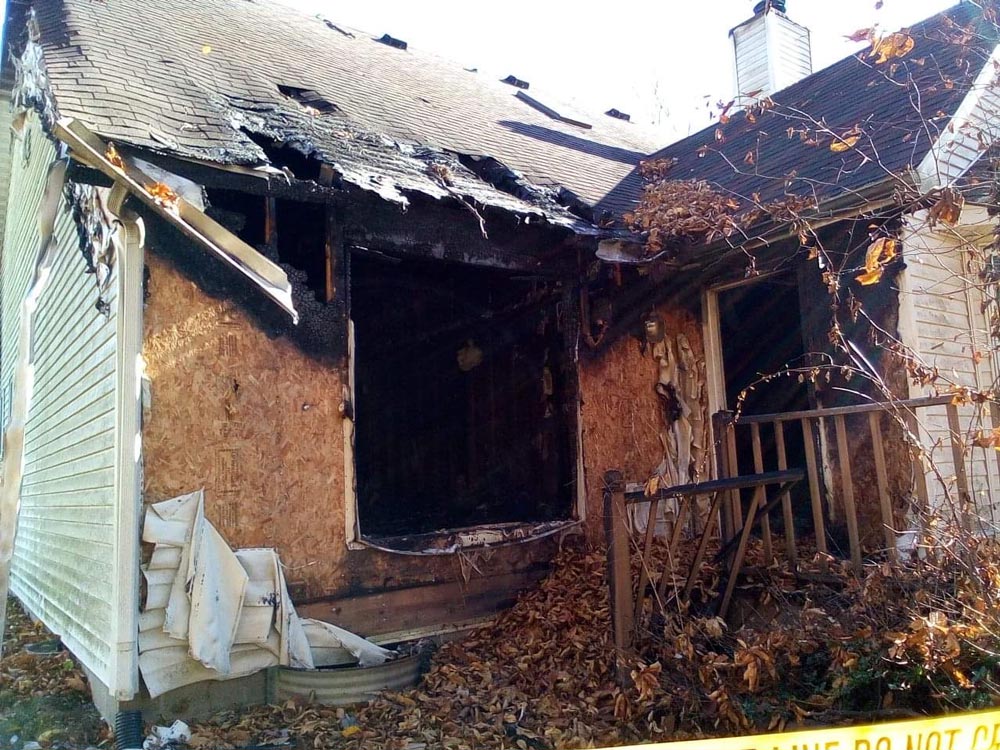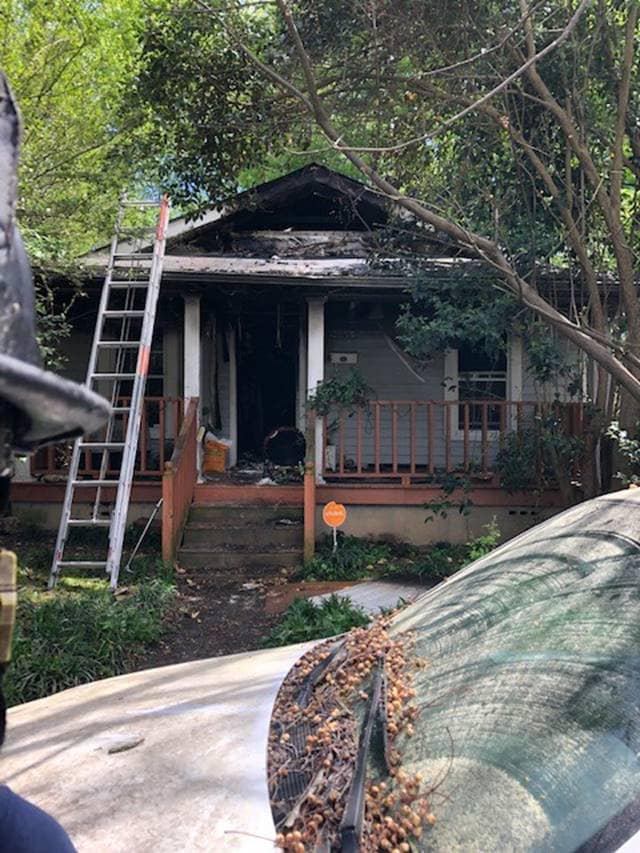Fire Damaged
House For Sale In California
Fill In The Form
Give us your contact info
Get VIP Notifications
Get notified before our big pool of investors via txt, call and email
Buy Sweet Deals
Get properties at super deep discounts and high ARVs. PROFIT BIG!!
JOIN OUR VIP LIST
Get Cash Offer
Investing in Fire Damaged Homes: Finding & Evaluating Properties
In real estate, opportunity can be found in unexpected locations. Fire-damaged houses, while overlooked by many, represent a unique niche with potential for significant returns.
These properties offer a combination of challenge and potential, attracting investors interested in lucrative transactions and homebuyers seeking accessible entry points into sought-after neighborhoods.
As we explore this intriguing market, we'll uncover the current trends shaping fire-damaged property sales, weigh the advantages against the risks, and provide insights on finding and evaluating these hidden gems.
The buying process and implementing effective restoration strategies equip you with the knowledge to transform a scorched structure into a valuable asset. Discover how savvy buyers are transforming disaster into opportunity and learn if venturing into this distinctive real estate niche could be your next smart move.
The Market For Fire-Damaged Houses
Current Trends In Fire-Damaged Property Sales
The market for fire-damaged houses has emerged as a unique niche in real estate, attracting investors and homebuyers seeking cost-effective entry points. This segment has gained traction due to the significantly reduced prices of damaged properties, offering attractive opportunities for those willing to invest in renovation.
Various companies have streamlined the process by offering quick cash payments, enabling smooth transactions for both sellers and buyers of these properties.
Factors Influencing The Market
Several key factors shape the fire-damaged property market:
- Extent of Damage: The severity of fire damage significantly impacts property value and buyer interest. Minor damage may require only cosmetic repairs, while extensive damage could necessitate substantial structural work.
- Insurance and Financing: Fire-damaged properties often present challenges in obtaining insurance and financing. Lenders and insurers may perceive these properties as high-risk, affecting loan availability and insurance coverage.
- Local Regulations: Building codes and regulations vary regionally, influencing renovation feasibility. Understanding local requirements is crucial before purchasing a fire-damaged property.
- Market Demand: Overall real estate demand in an area affects fire-damaged property sales. High-demand regions may see quick sales despite property conditions.
Regional Variations In Availability And Pricing
Availability and pricing of fire-damaged houses differ significantly across regions:
- Urban Areas: In cities like New York, where real estate prices are generally high, fire-damaged properties may still command substantial prices. Websites such as Trovit list various options in New York, offering potential buyers a range of choices.
- Rural Areas: Fire-damaged houses in less populated regions may be more affordable but potentially harder to find due to lower housing density.
Understanding the changing conditions in this market is essential for anyone considering investing in fire-damaged properties. By grasping these trends and factors, buyers can make informed decisions and potentially capitalize on unique real estate opportunities.
Advantages Of Buying Fire-Damaged Houses
Potential For Significant Cost Savings
Fire-damaged houses often come with a price tag significantly lower than their market value, presenting a golden opportunity for savvy buyers. This reduced cost can make homeownership more accessible, especially in sought-after neighborhoods where prices typically soar.
The discounted price allows buyers to enter the real estate market with a smaller initial investment, potentially freeing up funds for renovations or other expenses.
- Lower purchase prices
- Easier entry into desirable areas
- More financial flexibility for buyers
Companies who specialize in these properties can offer competitive cash deals that further streamline the buying process.
Investment Opportunities For Renovation And Resale
Fire-damaged properties present a unique canvas for investors and DIY enthusiasts alike. With vision and effort, these houses can be transformed into stunning homes, often surpassing their original condition. This renovation process can lead to substantial returns on investment through:
- Increased property value after restoration
- Potential for higher resale profits
- Opportunities for rental income
By using the money saved on the initial purchase to fund high-quality renovations, investors can significantly increase the property's market value. Websites such as Trovit offer listings of fire-damaged properties, providing a starting point for those eager to explore these lucrative opportunities.
Less Competition In The Buying Process
The prospect of extensive repairs often deters traditional homebuyers, creating a less competitive marketplace for those willing to take on fire-damaged properties. This reduced competition can lead to:
- More room for price negotiation
- Increased likelihood of securing the property
- Potential for better purchase terms
By partnering with real estate agents who specialize in distressed properties or directly contacting companies focused on this niche, buyers can gain a significant advantage. This approach allows them to uncover hidden gems that might otherwise be overlooked in a more crowded market.
Understanding these advantages empowers potential buyers to make informed decisions and capitalize on the unique opportunities presented by fire-damaged houses. With careful planning and the right resources, these properties can become valuable assets in a real estate portfolio.
Risks And Challenges Of Purchasing Fire-Damaged Properties
Assessing The Extent Of Damage
Accurately evaluating the damage is a primary hurdle when buying a fire-damaged property. Fire can wreak havoc on a home, causing both visible and hidden issues that affect structural integrity, electrical systems, and plumbing. Smoke and soot can lead to long-term problems, including poor air quality and persistent odors.
To avoid costly surprises, consider these steps:
- Conduct a thorough inspection before purchase
- Hire a professional inspector experienced in fire-damaged properties
- Look for hidden damages that may not be immediately apparent
Hidden Costs And Unforeseen Repairs
While the initial price tag on a fire-damaged house might seem attractive, repair and restoration costs can quickly escalate. Be prepared for:
- Hidden damages like compromised foundations or extensive mold growth
- Expenses related to meeting current building codes and safety standards
- Additional costs for unforeseen repairs that may surface during renovation
To mitigate financial risks:
- Create a detailed budget for known repairs
- Establish a substantial contingency fund for unexpected issues
- Research typical restoration costs for similar properties in your area
Insurance And Financing Hurdles
Securing insurance and financing for fire-damaged properties presents unique challenges. Traditional lenders often hesitate to provide mortgages due to perceived risks, and insurers may require extensive documentation before offering coverage.
To overcome these obstacles:
- Work with lenders specializing in distressed properties
- Seek out insurance companies experienced in covering fire-damaged homes
- Prepare detailed documentation of the property's condition and planned renovations
By understanding and addressing these issues, potential buyers can make more informed decisions and effectively purchase fire-damaged properties.
How To Find Fire-Damaged Houses For Sale
Discovering fire-damaged houses for sale requires a strategic approach and access to the right resources. While these properties may not be as readily available as traditional listings, several effective methods can help you uncover these unique investment opportunities.
Online Listings And Specialized Websites
The internet serves as a powerful tool for locating fire-damaged properties. Specialized platforms offer listings of distressed properties, including those affected by fire.
These websites typically allow you to filter searches by location, price range, and other specific criteria, streamlining your hunt for potential investments in your target area. These specialized platforms often provide a more efficient process for both buyers and sellers, with listings designed for this particular market.
Working With Real Estate Agents Specializing In Distressed Properties
Real estate professionals who focus on distressed properties can be invaluable allies in your search. These agents often have:
- Access to off-market listings not publicly advertised
- In-depth knowledge of the local distressed property market
- Expertise in handling the process of purchasing fire-damaged homes
Their guidance can prove crucial in areas such as price negotiation, legal considerations, and financial planning specific to these unique properties.
Contacting Local Fire Departments And Insurance Companies
Reaching out to local fire departments and insurance companies can yield valuable leads on fire-damaged properties. Fire departments maintain records of recent incidents, and some may be willing to share information about affected properties. Insurance companies, dealing regularly with fire-damaged homes, might have knowledge of available properties for sale.
- Tip: Building relationships with these organizations can provide you with insider information and early leads on potential investments.
Exploring Auctions And Foreclosure Sales
Auctions and foreclosure sales present excellent opportunities to find fire-damaged properties, often at reduced prices. These events can include homes that have suffered significant fire damage and are being sold through auction or foreclosure proceedings.
- Stay informed: Regularly check local auction listings and foreclosure notices to keep abreast of upcoming opportunities.
- Be prepared: Attending these events allows you to bid on properties directly, potentially securing a favorable deal.
By employing these diverse methods, you can effectively identify fire-damaged houses for sale and capitalize on the unique investment opportunities they present. Remember to conduct thorough due diligence and seek professional advice when considering any property purchase.
Evaluating A Fire-Damaged Property
Thoroughly evaluating fire-damaged properties is a crucial step after identifying potential investments. This process involves assessing damage extent, understanding repair costs, and determining potential returns on investment.
Initial Assessment Techniques
An initial assessment provides a rough idea of the damage and helps determine if the property warrants further investigation. During your walkthrough:
- Examine the exterior and interior for visible damage signs
- Look for charred walls, smoke stains, and structural issues
- Focus on areas prone to fire damage:
- Roof
- Attic
- Electrical systems
While this initial assessment doesn't cover everything, it can help determine if a more in-depth examination is needed.
Professional Inspections And Their Importance
Engaging professional inspectors is essential when evaluating fire-damaged properties. These experts perform thorough evaluations, identifying potential issues that could be overlooked during initial inspections. Professional inspections typically include:
- Checking structural integrity
- Assessing electrical and plumbing systems
- Identifying potential health hazards (mold, asbestos)
A thorough inspection report provides detailed insights into required repairs, enabling informed decision-making.
Estimating Renovation Costs And Potential Return On Investment
Accurate renovation cost estimates are crucial for determining investment viability. To get a realistic picture:
- Obtain quotes from fire damage restoration specialists
- Consider all renovation aspects:
- Structural repairs
- Electrical and plumbing work
- Cosmetic improvements
3. Compare total costs to the property's potential post-renovation market value
This analysis helps assess potential returns and determine if the property aligns with your financial objectives.
By carefully examining fire-damaged properties through these steps, you can make well-informed decisions and maximize your investment potential.
The Buying Process For Fire-Damaged Houses
Purchasing a fire-damaged house requires a strategic approach to ensure a successful transaction. Each step, from negotiating the price to addressing legal and insurance considerations, plays a crucial role in securing a good deal and protecting your investment.
Negotiating The Purchase Price
Negotiating the purchase price of a fire-damaged property is a critical step in the buying process. To prepare for negotiations:
- Conduct a thorough market analysis to understand the property's current value and potential post-renovation worth
- Use professional inspection findings to highlight damage extent and estimated repair costs Use the seller's potential motivation for a quick sale to your advantage.
Armed with this information, you'll be in a stronger position to negotiate a favorable deal.
Addressing Legal And Insurance Considerations
Fire-damaged properties come with unique legal and insurance challenges:
- Ensure the property has a clear title without outstanding liens or legal disputes
- Work with a real estate attorney experienced in distressed property transactions
- Research insurance providers specializing in fire-damaged properties
- Be prepared to provide detailed information about damage extent and renovation plans
Insurance for these properties can be more complex, with some insurers reluctant to provide coverage or offering higher premiums. Shopping around and working with specialists in this area is crucial.
Securing Financing Options For Distressed Properties
Financing a fire-damaged property often requires alternative approaches:
- Traditional mortgage lenders may be hesitant to approve loans for properties in poor condition
- Explore specialized financing options such as renovation loans or hard money loans
- Consider the different qualification criteria and potentially higher interest rates of these specialized loans
- Choose a financing option that aligns with your financial situation and investment goals
While these loans may have different terms than conventional mortgages, they can provide the necessary funds to purchase and renovate the property.
By thoughtfully considering each step of the buying process, you can reduce risks and establish a solid foundation for a successful investment in a fire-damaged property. Remember, thorough research and professional guidance are key to making informed decisions in this unique real estate niche.
WE CAN HELP WITH ANY SITUATION AND WE'RE READY TO GIVE YOU A FAIR CASH OFFER!
Enter Your Information Below it is Quick, Easy & Free!
Get Cash Offer
Restoration And Renovation Strategies
Restoring and renovating a fire-damaged house requires careful planning and strategic execution to ensure both safety and profitability. Let's explore effective strategies for prioritizing repairs, hiring the right professionals, and striking a balance between cost-effective renovations and property value enhancement.
Prioritizing Repairs And Improvements
The restoration process begins with prioritizing necessary repairs and improvements. Conduct a thorough assessment of the damage, focusing on:
- Structural integrity
- Electrical systems
- Plumbing
- HVAC systems
Addressing these critical areas ensures the home's safety and functionality. Once essential repairs are identified, move on to cosmetic improvements such as:
- Drywall replacement
- Painting
- Flooring
This approach helps manage your budget effectively and resolves the most critical issues first.
Hiring Specialized Contractors For Fire Damage Restoration
Engaging specialized contractors with fire damage restoration experience is crucial for a successful renovation. These professionals possess the knowledge and tools to handle unique challenges like:
- Smoke odor removal
- Soot cleanup
- Structural repairs
When selecting contractors:
- Look for certified professionals
- Check reviews from previous clients
- Obtain multiple quotes to compare pricing and services
Working with experts ensures correct and efficient restoration, minimizing the risk of future problems.
Balancing Cost-Effective Renovations With Property Value Enhancement
Maximizing your investment requires balancing cost-effective renovations with property value enhancement. Focus on improvements offering the highest return on investment (ROI), such as:
- Kitchen and bathroom remodels
- Energy-efficient upgrades
- Curb appeal enhancements
While controlling costs is important, don't compromise on quality, as subpar work can negatively impact the property's value and appeal. Consider consulting a real estate agent or property appraiser to understand which renovations will add the most value in your specific market.
By implementing these strategies and leveraging the right resources, you can transform a fire-damaged property into a valuable asset. Smart renovation choices will enhance the property's value and attract potential buyers or tenants, making your restoration project a rewarding endeavor.
Potential Profitability And Long-Term Considerations
Investing in fire-damaged houses can be a lucrative venture, but it requires careful analysis and strategic planning to maximize returns. Let's explore the profitability and long-term considerations you should keep in mind when dealing with these unique properties.
Analyzing Market Value Post-Renovation
Determining the profitability of a fire-damaged house hinges on accurately assessing its market value after renovation. To get a clear picture:
- Research comparable properties in the area that have undergone similar renovations
- Utilize property appraisal services
- Consult with experienced real estate agents
Understanding the potential market value helps set a realistic renovation budget and ensures your investment will yield a profitable return. This knowledge is crucial for making informed decisions throughout the restoration process.
Rental Income Possibilities
For those considering a buy-and-hold strategy, exploring rental income possibilities can provide a steady revenue stream. Fire-damaged properties, once restored, can be attractive rental options due to their potentially lower acquisition costs.
To assess the rental potential:
- Research average rental rates in the area
- Evaluate typical occupancy levels
- Calculate potential rental income against your total investment
Consider the long-term benefits of rental properties, such as property appreciation and tax advantages. This approach can offer financial stability and growth over time.
Flipping Vs. Long-Term Investment Strategies
Choosing between flipping a fire-damaged house and holding it as a long-term investment depends on your financial objectives and risk tolerance.
Flipping:
- Involves quick renovation and resale
- Can yield significant short-term profits
- Requires market expertise and higher risk tolerance
Long-term investment:
- Focuses on generating ongoing rental income
- Offers more stability and potential property value appreciation
- Provides a steady cash flow over time
Carefully evaluate both strategies to determine which aligns best with your financial goals and capabilities. Consider factors such as market conditions, your renovation skills, and your capacity for property management.
By thoroughly analyzing market value, exploring rental possibilities, and weighing the pros and cons of different investment strategies, you can make informed decisions that maximize the profitability and sustainability of your investment in fire-damaged houses.
Frequently Asked Questions
What types of fire damage are most common in houses for sale?
Fire-damaged houses typically exhibit three main types of damage: structural, smoke and soot, and water damage.
Structural damage compromises the building's integrity. Smoke and soot penetrate surfaces, necessitating thorough cleaning and restoration. Water damage, resulting from firefighting efforts, can lead to mold and mildew if not promptly addressed.
How long does it typically take to renovate a fire-damaged house?
Renovation timelines vary based on damage severity. Minor repairs might take weeks, while extensive renovations involving structural work, rewiring, and plumbing can span several months. On average, major renovations take three to six months to complete.
Are there special loans available for purchasing and renovating fire-damaged properties?
Several financing options cater to fire-damaged property purchases and renovations. The FHA 203(k) loan allows buyers to finance both purchase and renovation costs in one mortgage. Some lenders offer specialized rehabilitation loans for distressed properties, including those with fire damage.
What are the most important factors to consider when insuring a previously fire-damaged house?
Key considerations for insuring a previously fire-damaged house include:
- Extent of past damage and quality of repairs
- Detailed inspection reports
- Documentation of all repairs
- Compliance with local building codes
- Potential for higher premiums due to property history
Insurance companies typically require thorough assessments to determine the property's current condition.
Can fire-damaged houses be a good option for first-time homebuyers?
Fire-damaged houses can offer first-time homebuyers an affordable entry into the housing market. However, buyers should:
- Thoroughly assess damage extent and repair costs
- Work with experienced contractors
- Consult real estate agents specializing in distressed properties
While these properties present opportunities, first-time buyers must approach them with caution and seek expert guidance to ensure a successful purchase and renovation process.
Conclusion
Fire-damaged houses present a mix of opportunities and challenges in the real estate market. These properties can offer substantial cost savings and investment opportunities for those interested in understanding how to use them effectively.
Throughout our exploration, we've uncovered valuable insights into market trends, advantages, and risks associated with these distressed properties.
Key takeaways include:
- Current market trends vary by region, influencing availability and pricing
- Potential for substantial cost savings and investment opportunities
- Less competition in the buying process
- Risks of hidden costs and unforeseen repairs
- Importance of thorough property assessment and professional inspections
Finding fire-damaged properties has become more accessible through:
- Online listings and specialized websites
- Real estate agents focusing on distressed properties
- Local fire departments and insurance companies
- Auctions and foreclosure sales
Successful renovation of these homes hinges on:
- Accurate damage assessment
- Professional guidance in restoration
- Balancing cost-effective repairs with value enhancement
For investors and first-time homebuyers alike, fire-damaged houses can be a profitable venture when approached with diligence. Thorough research, expert advice, and a clear understanding of the restoration process are crucial for making informed decisions in this niche market.
By carefully weighing the potential rewards against the challenges, buyers can turn these distressed properties into valuable assets.






